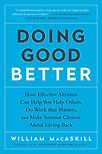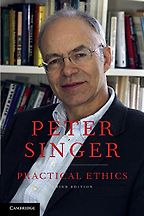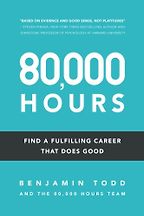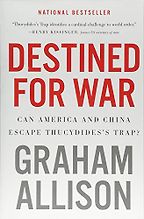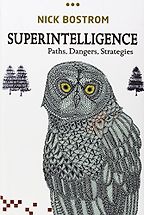You’re one of the leading figures of the effective altruism movement. First, for our readers who may not know what effective altruism is about, can you try to summarize the concept and its implications for us?
Effective altruism is about using your time and money as effectively as possible, to do as much good as possible, and using careful reasoning and scientific evidence to work out the ways of doing good that will have the biggest possible impact. In terms of its implications, the effective altruism community that has grown around these ideas tends to focus on three major cause areas. One is global health and development, to improve the lives of the poorest people in the world. Second is trying to mitigate the worst horrors of factory farming, whereby 60 billion animals are killed each year after being kept in horrific conditions their entire life. The third is ensuring that the very long future goes as well as possible, including avoiding what Nick Bostrom calls existential risks, which can permanently curtail the long-term potential of humanity.
You’ve co-founded several of the leading organizations in the field of effective altruism: Giving What We Can in 2009, 80,000 Hours in 2011, and finally the Centre for Effective Altruism as an umbrella organization. Can you walk us through the history of your involvement in effective altruism: how did it all start, and how did you come to launch these multiple projects?
I was always motivated to do good with my own life. By reading Peter Singer, that concern became supercharged, and when I arrived as a graduate student at Oxford, I realized that my plans to become a philosopher of logic and language were perhaps not morally justified, and I started looking around and wonder how I could contribute with my time and money. At the time, I was very focused on improving the lives of those in extreme poverty. I luckily met another philosophy graduate student, Toby Ord, who had developed Giving What We Can, encouraging people to give at least 10% of their income to the charities that are most effective, and giving recommendations for those most effective charities. As soon as he told me this idea, I thought it was brilliant and wanted to get very heavily involved, and we co-founded the organization six months later, in November 2009.
“Effective altruism is about using your time and money as effectively as possible, to do as much good as possible, and working out how to have the biggest possible impact.”
That started to grow progressively and people became interested in these ideas, but there were a lot of students at Oxford who were thinking, ‘Well, it’s all very well to tell us to give effectively, but I have a decision coming up: which career should I pursue?’ I actually felt the same: I didn’t know whether I should be a philosopher and pursue a PhD, or try something completely different. Benjamin Todd and I gave a lecture on the topic of the best career choices to pursue, which turned into several lectures, which turned into a website, and finally an organization of its own, called 80,000 Hours.
At about the same time, we started to see that this term that we’d come up with, ‘effective altruism’, was actually growing more and more, even though we originally thought that it was just too abstract to really take off. But it really did, so in 2011, we formed the Centre for Effective Altruism to manage this burgeoning effective altruism community. There are now over a hundred local groups around the world, and yearly conferences gathering thousands of people interested in doing significant good in their lives.
Why has effective altruism been met with so much passion and enthusiasm in the last decade or so? It seems like the main philosophical building blocks (moral philosophy, utilitarianism, consequentialism, etc.) to arrive at these conclusions had been available for a long time already.
There are a few reasons. One is that it was only in the last few decades that we’ve actually started to get high-quality data on how you can make an extraordinary difference with relatively small amounts of money. It moved from being a theoretical argument to do good, to concretely showing that a few thousand dollars can save a life. That’s a lot more powerful.
A second reason is a change of messaging. Whereas Peter Singer emphasized the really strong obligation to feel guilty of not helping those in poor countries, our messaging was more positive and optimistic. Whether or not you think there’s an obligation to help the poor or improve the world, it’s just an exciting and fulfilling way to live your life.
The third reason is that philosophers aren’t necessarily the most action-oriented researchers. But at about the same time, there turned out to be a lot of people—not just us, but also those working at Give Well—who were willing to make this happen, and all this latent interest was actualized.
Let’s start talking about the books you’ve chosen, starting with Practical Ethics by Peter Singer. He is the leading philosophical figure of the movement. Why is this book important to you?
I think of Peter as the ‘grandfather’ of effective altruism. He laid out the foundations, and he’s the reason many people got into the community. He didn’t start the movement itself, but he’s clearly its inspiration and has been a big proponent of ideas. In terms of why I chose this book, I can think of three reasons.
“I think of Peter as the ‘grandfather’ of effective altruism.”
One is that some core philosophical ideas in it are key motivations for effective altruism itself. A second reason is that it was one of the books that really got me enthusiastic about philosophy. I had already decided to study philosophy as an undergraduate, but when I read it, I was really compelled by the thought that philosophical reasoning is of huge importance and can really change the world. I was so inspired by that. The third reason is that Peter Singer represents the career and life that I would also like to lead: someone whose ultimate purpose is the pursuit of truth, with the willingness to follow arguments wherever they lead, and actually willing to make changes to their life on the basis of those ideas.
Peter Singer is known for introducing the metaphor of the “child in the pond”, to explain why citizens of rich, developed countries have a moral duty to give money back to poor countries. Can you explain this metaphor and its implications? Is it a tool that you use yourself to convince people of the necessity of altruism, or do some other arguments tend to be more persuasive?
The thought experiment is this: imagine you’re walking past a child drowning in a shallow pond, screaming for help. You can get in and save the child, but you’re wearing a really nice suit or dress, perhaps because you’re on your way to a wedding. It cost several thousands of dollars, and will get completely ruined in order to save the child. Imagine yourself thinking that you don’t want to waste that money, and you just walk on by and let the child die. In moral philosophy, we have a technical term for someone who does that: they’re called an asshole. It’s very clear morally that if there’s a child drowning in front of you, you’re required to save them, even if it costs you a few thousand dollars. That sum of money to you is simply nothing in comparison with saving a life. But then, the killer twist is that we’re in that situation all the time. For a $3,500 donation to the Against Malaria Foundation, you can, on average, save one child’s life. What’s the moral difference? Arguing that there is none, Peter Singer concludes that we’re actually obliged to give away a lot of our income to those living in poor countries.
I find that argument very compelling, and it was one of the reasons for me to become an effective altruist. But it’s not an argument I use very much in public, partly because I think it’s not the most persuasive one, and it’s not always necessary to use it. There is already a very large number of people who want to do good, and the reason that’s stopping them from doing good is that it’s confusing and scary, and they’re afraid of not having an impact. I certainly was in that category as an undergraduate. What we do is skip to the chase and tell those people: ‘look, these are the options available to you, and you can truly have a transformative impact on the world. It’s up to you to pursue that life or not.’ I doubt that those who decide not to pursue it, even in the face of such opportunities, would get convinced by additional moral arguments.
Effective altruism is generally associated with initiatives to give money back to people in poor countries, to improve healthcare in particular. But Singer’s Practical Ethics also focuses on another issue: animal rights. The Effective Altruism Funds website, which lets individuals donate to the Centre for Effective Altruism and distribute their money as effectively as possible, actually includes animal welfare in its priorities. Is this an issue that is still neglected today, both financially and in terms of public discourse?
It’s extremely neglected, and probably the most neglected cause among the ones we look at. 60 billion animals are killed every year for food, and the very vast majority of them are kept in factories, in horrific conditions. Almost everyone in society, if they really understood what those conditions are, would vote against them. Yet, there are only a few tens of millions of dollars spent every year on improving the conditions of animals in factory farms. You can compare that to global health and development, which I also think is neglected, but receives 250 billion dollars every year. This is ten thousand times as much money, and that’s not counting individual philanthropy as well, which also amounts to many billions of dollars. So it’s a huge issue, and an incredibly neglected one in relation to the size of the problem. I think that’s true in public discourse as well. Society is starting to do a little better—a few percent of people are vegetarians, but it’s not major news. For an issue that future generations might look back on and see as a moral atrocity, it barely gets mentioned. In a way that’s not astounding, since animals can’t unionize, they don’t get a vote, they’re completely disenfranchised in society.
“Animal welfare is probably the most neglected cause among the ones we look at.”
Singer talks a lot in the book about the difference—or rather in his view the non-difference—between humans and animals. Do you think that, because of the widespread belief that there’s a huge difference between those groups, a higher priority will always be given to human happiness over animal happiness? Or is it possible to imagine, in a few decades or centuries, reaching a stage where equal weight is given to both issues?
I think it’s possible that people in the future will come to regard animals as being of equal status to humans. That doesn’t mean I would save 2 chickens over 1 human. The ratio would probably still be a thousand to one, or something like that. But one unit of pain is the same whether you’re a chicken or a human being. I think it’s possible to achieve this, but I would expect that getting there requires removing a huge self-interested bias that people have to not care about animals. If we get very low-cost, tasty and healthy lab-grown meat, that might be a solution. It would provide people with a self-interested incentive to stop farming animals in order to eat meat, and they’ll gradually realize that the conditions in which factory farming was done were horrible.
Your second choice was Reasons and Persons by Derek Parfit. Parfit passed away in 2017, but his work was also fundamental to the philosophical basis of effective altruism. Who was he, and what did he work on?
Derek Parfit is much less known in the public sphere than Peter Singer. He never wrote books intended for a general audience, but within academia, he was significantly more influential. His book Reasons and Persons, especially, has over 10,000 citations. I would say that Derek Parfit was the most brilliant philosopher of the 20th century. Others would maybe dispute that claim, but everyone would agree that he would be in the top 5.
Reasons and Persons is so important because it introduced to the world the field of population ethics: reasoning ethically about the value of increasing the size of the population in the world, and the size of the population in the future. Is it better to have more people if those people have happy lives? Is it worse to have more people if those people have a life so bad it’s not worth living? If it is better to have more people, what is exactly the theory that governs how to think about these changes in the size of the population? Do you just add up the happiness of everyone? If so, you get counterintuitive conclusions. Do you just try to maximize the average well-being? If so, you also get counterintuitive conclusions.
Parfit raised those questions, without claiming to have an answer. He made many fundamental breakthroughs in his book as well, and I think that this field of inquiry is among the most important ones right now. The conclusions we ought to draw given the many decades of research done since Parfit’s book, mean that we should think that, all else equal, it’s good to have one more person if they’re sufficiently well-off. That’s a huge departure from common sense ethics, and it’s extremely important from a moral standpoint.
Towards the end of his career, Parfit became more concerned about the effects of our actions on future generations, and especially the research on existential risks. Do you also agree that this is a pressing matter that’s not receiving enough attention?
I do agree that it’s a pressing matter, and even possibly the most important set of issues we face. We are remarkably early in the story of civilization. Almost all the value that the human race could achieve lies in the future: all the greatest scientific advances, works of art, peaks of happiness and creativity. But we now seem to be entering a stage where there is at least some chance that all those things could be lost. The biggest shift occurred in 1945 with the use of nuclear weapons, which put on the table the idea that we could develop technology so powerful that we’d be capable of destroying ourselves. The study of existential risks receives very little attention, in the order of a few tens of millions of dollars per year; but it’s increasing.
“Almost all the value that the human race could achieve lies in the future: all the greatest scientific advances, works of art, peaks of happiness and creativity.”
The reason for this renewed attention is twofold. First, the success of the effective altruism movement means that more people are taking these issues seriously, and are trying to think about how to deal with them—and key researchers like Nick Bostrom are doing very good work on this. Second, these issues have become more salient now. Worry about existential risks was very widespread in the 1960s and 1970s, with strong protests against nuclear weapons. Of course it wasn’t referred to as an existential risk, but simply as nuclear proliferation. Nowadays we have identified many of those risks: war, nuclear weapons, climate change, man-made pandemic, artificial intelligence, etc. And just as with the effective altruism movement, having something concrete rather than abstract to worry about is much more compelling.
One of the big debates in the effective altruism community is the ‘pledge’. Organizations like Giving What We Can try to get individuals to pledge to give 10% of their income for the rest of their life towards helping important causes. Others focus on a particular threshold: Toby Ord, who co-founded it with you, pledged in 2009 to give everything he earns over £18,000 (adjusted for inflation). Some also use targets, pledging to give a certain amount over their lifetime. Parfit argued that there was no perfect philosophical answer to that question, because it would always be justified for someone living in a rich developed country to keep increasing what they’re giving until they reached 100%. What’s your view on this question?
I think I’ll disagree with Derek Parfit on this one! I think there are a couple of considerations that he maybe doesn’t mention, but which are very important in setting that threshold. Giving more has two effects: obviously it means more money is going to charity, but it slightly decreases your own living conditions. Perhaps it has zero effect to begin with, but as you start to donate more and more, now you might have to take slower transport to get to the office, or buy a cheaper suit which could impact your job prospects, etc. At some point those considerations outweigh the benefits of your donations. For someone in a rich country, the point at which it’s no longer optimal to keep donating is much higher than a poverty threshold of two dollars per day—because if you gave everything above two dollars a day, you simply wouldn’t be able to live in a rich country, and therefore earn money to donate.
A second point is that we should be actualists. Actualism versus possibilism is a question in moral philosophy, which can be framed like this: when I decide what I ought to do today, should I take into account my own future weakness of the will? Actualism says that we should. If you give away all of your savings at once today—which you could technically do—you’ll probably get so frustrated that you’ll simply stop giving in the future. Whereas if you decide to give 10% of your earnings, this commitment will be sustainable enough that you’ll continue doing it over many years in the future, resulting in a higher overall amount, and thus a higher impact. Therefore, an actualist says that you should give only 10%.
In my opinion, the best philosophical answer to the question of how much you ought to give, is that you should give as much as you can to maximize your long-term giving, taking into account both the fact that you can spend money to make more money, and this concept of future weakness of the will. And then of course, there is the question of how demanding this commitment is—but I think that for most people it isn’t very demanding at all. If you live in a rich country and pledge to give 10% of your earnings, you’re still living a better life than almost everyone who’s ever lived.
Next up in your selection, we have 80,000 Hours, by Ben Todd. As we mentioned earlier, 80,000 Hours is an organization that you co-founded in 2011 with him. Can you explain what it does, and what’s in this book?
80,000 Hours is named after the number of hours we spend working in our life. That’s a lot of hours. Spending 1% of this, 800 hours, on figuring out what to do with the remaining 99%, makes a lot of sense. The aim of this organization is to provide advice and coaching for people who want to use their career to do as much good as possible. It has developed a body of research since its creation, and it has coached hundreds of people, giving them tailored advice on how they can use their career to have the biggest impact. The book is a summary of these years of research. It addresses questions like: what are the most important areas you should focus? Within those cause areas, such as global health and development or existential risks, what are the highest priority careers? To what extent should you focus on what you’re personally passionate about, good at, or excited about? To what extent should you invest in yourself in order to have a larger impact later on, such as by pursuing further degrees, or working in a non-impactful but prestigious organization that would train you really well? These are the core questions of the book.
Beyond all the research and analysis that’s been written since 80,000 Hours was created, part of its activities consist in directly advising individuals who would like to make their careers more useful, or change path. How does this work? How successful has this initiative been so far?
It seems to have been very successful so far, although it’s been a long time since I’ve personally done some coaching. But about a third of the people I talked to reported having made significant changes in their life on the basis of the advice they received, and it’s probably a larger amount now. There are various calls to action on 80,000 Hours’s website; after someone has read a bit, they can apply for coaching, especially if they’re interested in a particular area. They’ll be asked to read a lot of background on the research that we’ve done, then they’ll talk to an advisor, to discuss what are their strengths and weaknesses, what they think they could potentially excel in if they worked in a particular area, and what would be their 2 or 3 best potential options. These are often people in the early stage of their career, in their twenties. They’ll also get connected to various mentors who have specialist knowledge and have worked in these areas for a number of years. They go away from this coaching with a long list of things to look into, jobs to apply for, etc.
“Spending 1% of your career figuring out what to do with the remaining 99% makes a lot of sense.”
80,000 Hours is also interesting in the way it manages its own operations. It tries to be very transparent and publishes a lot of managerial/administrative reports on its website, including targets, hiring, budget, etc. Is this something you’ve learned from Giving What We Can, where you spent a significant amount of time looking into the often opaque activities of many charities?
The motivation for this is a kind of “practice what you teach” idea. The world would be a lot better if charities were very honest and open about what they do, including their mistakes. One thing we found when looking at charities is that it can be incredibly hard to know even the basics of what a charity actually does—not in the sense of what they focus on, such as malaria, but what is actually their intervention and what is the evidence base for this intervention. I think that transparent reporting is good for the organization as well: it keeps you on track, especially as a charity when you don’t have the carrot and stick of profits and losses beating you into submission all the time. Instead, you have to rely much more on judgements from advisors and people you work with, to judge how well you’re doing. Being transparent on these aspects means that you get a lot more opportunities to get criticised. It’s also the case that 80,000 Hours received money from the effective altruism community, from very deserving donors who would not donate to an organization that wouldn’t report what it was really doing.
Your two last choices are quite different, as they focus on specific contemporary issues. Let’s start with Destined for War, a book published in 2017 by Graham Allison. Allison is a renowned political scientist, with extended experience in advising American presidents on geopolitics. Here he focuses on what he calls Thucydides’s trap. What is this trap, and why is this an important book to read?
The book is about assessing the chance of the United States going to war with China in the future. Thucydides’ trap was written about by the greek historian Thucydides during the Peloponnesian War. The argument is that when you’ve got a ‘hegemon’, a country that has power over an area or the world, and there is a rising power that grows, strengthens and threatens to take over the hegemon, that generally leads to war. Twelve out of sixteen times in history, that has happened. Allison doesn’t go into as much depth on what would be the theoretical model behind this, but the idea is that two powers are competing for status. As the ‘top dog’, if you see someone else competing for your spot, you’re in a position to kill them first—and if you don’t, you’re at risk of getting killed once they’ve caught up with you. Any quantitative argument about the chances of war in the 21st century will be very subjective—I certainly wouldn’t want to say that it’s 75% just because of this twelve-out-of-sixteen idea. Allison doesn’t make that claim himself, but what he makes clear is that war is the normal state for humanity. The last 70 years are a fairly unusual state. We don’t really know why they’ve been so unusual. It’s possible that it’s a result of contingent facts about technology, namely nuclear weapons. This could all change in the 21st century. This, combined with the incredible economic progress of China, means that we should take very seriously the possibility of war, even though it seems so weird and unprecedented for people of my generation, who grew up in a period of almost complete peace.
On a similar note, you last choice was Superintelligence by Nick Bostrom, founding director of the Future of Humanity Institute at Oxford. It’s a dense work that focuses on artificial intelligence and its possibilities, but also the dangers of an uncontrollable superintelligence surpassing human capacities in a very short span of time. Why did you pick it?
I picked this book because the possibility of developing human-level artificial intelligence, and from there superintelligence—an artificial agent that is considerably more intelligent than we are—is at least a contender for the most important issue in the next two centuries. Bostrom’s book has been very influential in effective altruism, leading lots of people to work on artificial intelligence to ensure that it is developed safely. I don’t agree with the entire book, but there are many compelling arguments in it, and it would be extremely overconfident to dismiss it as too speculative. In fact, I think there should be a lot more work that tries to understand the biggest challenges for the next two hundred years, and what we could do to try to overcome them.
Both Destined for War and Superintelligence argue that we should take a much larger (in scale) and longer (in time) view on important topics like geopolitics and artificial intelligence. That’s also one of the philosophical pillars of effective altruism and the organizations you co-created: Giving What We Can is trying to solve the world’s most pressing problems, and 80,000 Hours to make sure that young, ethically-minded graduates work on what will most benefit humanity in the long run. How hard have you found it to convince the public to embrace this large-scale, long-term approach to life and ethics?
Since these long-term ideas have become more influential in effective altruism, we’ve also done less mass media outreach, so I don’t actually have a perfect sense of how compelling the public finds them. Certainly, for the issue of climate change, people are very onboard with the idea that we should be safeguarding the planet now in order to provide a good planet for our children, their children, and so on. Within the effective altruism community, people have systematically found this set of arguments very compelling. The key issue is really whether you think that people in the future matter as much as people living today. If so, then do you think that there will be a lot more people in the future than today? It seems extremely plausible. Then, you’ve at least acknowledged that most of the value lies in the future. The mass attention we’re trying to give to this, such as with my TED Talk, has been very well-received so far. We’re still in the early days, and some people do think that we should only focus on the more easily measurable and quantifiable bets. That’s a perfectly reasonable position, but I’m optimistic that the arguments in favour of effective altruism are so compelling that the public will learn to see longtermism as a very important issue.
Five Books aims to keep its book recommendations and interviews up to date. If you are the interviewee and would like to update your choice of books (or even just what you say about them) please email us at [email protected]
Five Books interviews are expensive to produce. If you've enjoyed this interview, please support us by donating a small amount.

